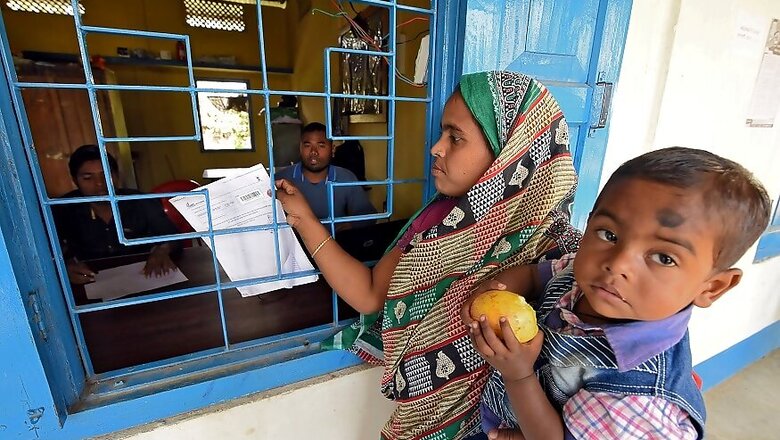
views
While the Home ministry, in its new amended order, spelled a clear road map for those not included in the National Register of Citizens (NRC), it also gave unspecified and unprecedented powers to the Foreigners Tribunals (FTs) – the quasi-judicial authority that assesses the question of authenticity of a person's citizenship.
The new Foreigners (Tribunals) Amendment Order 2019, dated May 30, allows all states to constitute their own FTs, earlier unique to Assam, to address the question of citizenship of a person. The amendment empowers district magistrates in all states and union territories to set up FTs to detect foreigners.
The amendment substitutes “the central government” with “the central government or the state government or the union territory administration or the district collector or the district magistrate,” allowing all latter authorities to refer to the question: whether a person is not a foreigner within the meaning of the Foreigners Act, to FTs for its opinion and thereby creating one.
Unlike regular courts of crime, where a person is presumed innocent until proven guilty, and the onus is on the prosecution to prove the guilt of the accused, in an FT hearing, the burden of proof lies on the person whose citizenship is under question.
The person under question has to prove both the authenticity of their citizenship and the authenticity of the documents used to build his/her case.
The Home ministry has also re-ordered existing paragraphs and added two additional paragraphs in the new Order, granting uncertain yet indefinite powers to the FTs.
Sub-clause 17 of the new paragraph 3A in the Order is of particular interest here. It reads: “Subject to the provision of this Order, the Tribunal shall have the power to regulate its own procedure for disposal of the cases expeditiously in a time bound manner.”
The new clause assumes significance given the propensity of the FTs to decide cases ex parte (in the absence of the proceedee). The FTs are now granted power to regulate its own procedure for the disposal of cases. They are given a carte blanche (to operate as they please) of unlimited or unspecified powers.
The draft NRC in Assam was published on July 30, 2018 amid huge controversy over the exclusion of 40.7 lakh people from it. With the final NRC getting ready to be published on July 31 after Claims and Objections, the Centre has set the directive for those excluded to approach the FTs.
What tightens the noose on citizenship further is the inclusion of new paragraphs 1B and 3B in the Order, which restrict an appeal against detection as foreigner solely to the FTs and under the specific “terms and conditions”.
For instance, in the case of NRC, if an appeal is made then the new order allows the District and Sub-District Registrar or Local Registrar of Citizen to furnish any information pertaining to the determination of the citizenship status of a person.
If an appeal is not made, the concerned authority “may refer to the Tribunal for its opinion”. Regardless, the FTs are to deliver their verdict within four months of the missing persons submitting their records.
Furthermore, the new Order makes FTs the final decision-making body on citizenship in Assam or elsewhere by setting a condition on hearing an appeal. Sub-clause 10 of the new paragraph 3A says that the FTs may issue notice to the appellant and the district magistrate for hearing of the question of one’s citizenship only if, after producing records, it “finds merit in the appeal”.
Given the quasi-judicial nature of the FTs and the several concerns that have been raised about its functioning, opening the interpretation of the word “merit” to the wisdom of the FT members poses an alarming development.
The new order disempowers those already vulnerable under the law’s jurisdiction by creating ambiguity over what constitutes “merit”. It increases the possibility of bias or an erroneous judgment.
The Centre is going to help the Assam government in setting up 1,000 FTs by July 31 to ease the rush of the many claims for inclusion in the NRC. The central government is also in the process of giving its approval to the state government's proposal to set up e-Foreigners Tribunals.
The Supreme Court-monitored NRC exercise, aimed at identifying illegal immigrants in the state that borders Bangladesh, was carried out only in Assam, but the FT mechanism unique to it that determines one’s citizenship now transcends all states.




















Comments
0 comment